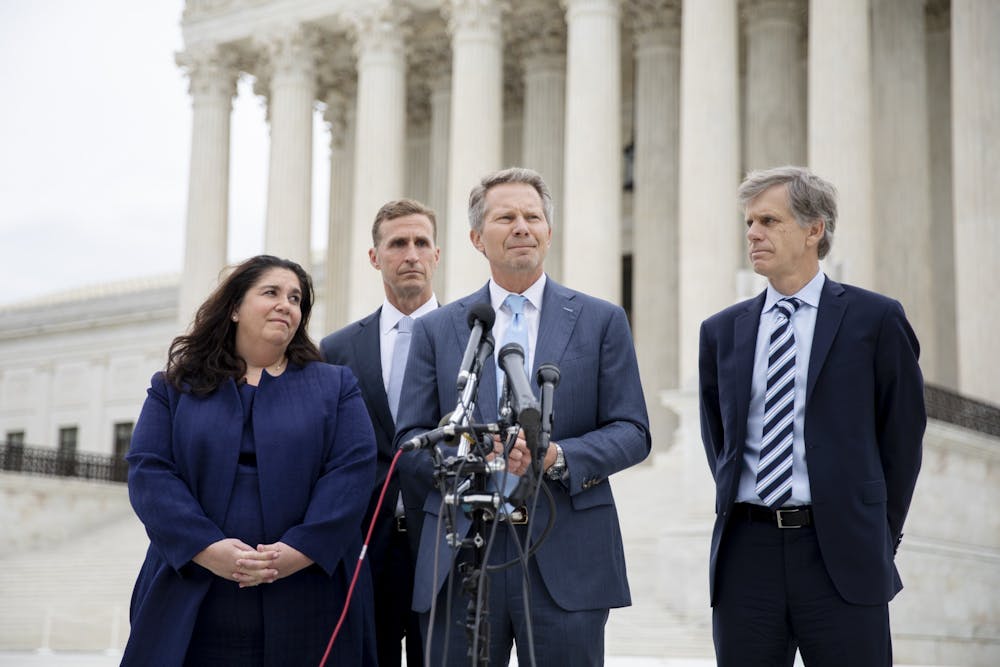On June 29, 2023, the U.S Supreme Court voted in a 6-3 decision to strike down affirmative action, deeming race-conscious university admission programs unlawful.
Throughout this academic school year, the implications of the SCOTUS decision have set the scene for what admissions looks like for incoming and future undergraduate students at UNC.
In July, following the Supreme Court’s decision, the Board of Trustees published a non-discrimination resolution, stating that the University can only consider merit, qualifications and individual experiences outside of race during the admissions process. The resolution also states that the University will not endorse any system, through application essays or other means, that rely on race-based preferences for hiring or admissions.
BOT member Marty Kotis initially introduced this resolution upon joining the board in 2021. Kotis said he firmly opposes discrimination and quotas, drawing from Chief Justice John Roberts’ assertion that the true removal of discrimination necessitates removing it entirely.
“Our critics have said Carolina’s student body should mirror the state’s demographics. I disagree because that position ignores the global population and it places in jeopardy the UNC system’s prized HBCUs and other minority-majority institutions,” Kotis said in an email statement. “Our challenge now is making sure every high school student in the state understands they have an opportunity at Carolina if they meet the admissions requirements."
Instead of highlighting race, Kotis said the University should instead highlight financial aid programs and other resources available to underrepresented students.
In a Faculty Council meeting on Sept. 8, Kara Simmons, associate vice chancellor and senior University counsel, outlined the implications of the SCOTUS decision for the University.
UNC can no longer consider race as a factor for candidates at any stage of admissions, Simmons said. The University also cannot utilize the admissions process to track achievement of any racial diversity goals within a program. Additionally, the racial status of applicants during the admissions process cannot be tracked to assess the racial composition of an incoming class or compare it to that of previous classes.
"It is important that we strike the proper balance in assessing all the information we have about an applicant and doing so in a way that’s compliant," Simmons said at the meeting.


